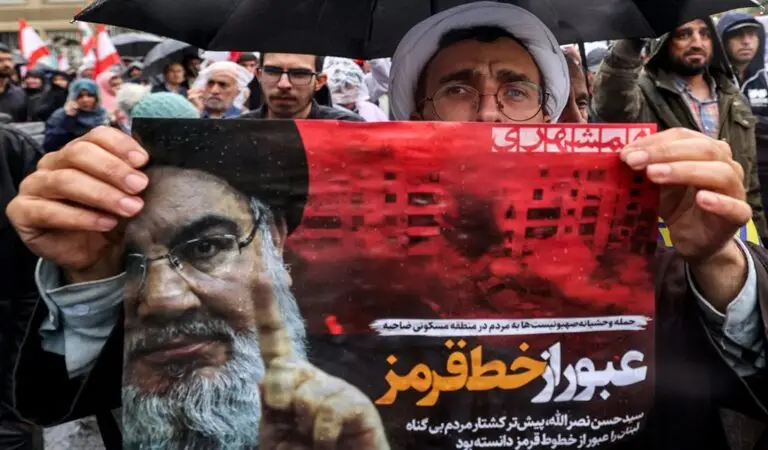In a dramatic escalation of conflict, Israeli forces have confirmed the death of Hezbollah leader Hassan Nasrallah following a significant airstrike in Lebanon. This operation, which took place in the southern suburbs of Beirut, has been described by Israeli Prime Minister Benjamin Netanyahu as a “turning point” for the nation.
Hezbollah confirmed Nasrallah’s death on Saturday, leading to mixed reactions; while some Israelis celebrated the news, many in Lebanon mourned the loss of a figure revered among his supporters. The airstrike, executed on Friday, has heightened tensions across the Middle East, raising fears of further violence as regional leaders condemned the killing and some Hezbollah allies vowed retribution.
“He has joined the ranks of the immortal martyrs whom he led for nearly three decades,” Hezbollah stated in a public message following the news. Netanyahu, meanwhile, expressed that the operation was necessary for Israel’s security, stating, “We have settled the score for the killings of Israelis and citizens of other nations, including Americans.”
In the aftermath of Nasrallah’s killing, Israeli forces launched further attacks on Lebanon, targeting various sites, including a warehouse near Beirut’s airport, as the Israeli military seeks to prevent arms shipments to Hezbollah.
Iran, a key ally of Hezbollah that supplies it with military support, reported the loss of a senior member of its Revolutionary Guards Corps in the same strike, along with Hezbollah’s commander in southern Lebanon, Ali Karake. The ripple effects of Nasrallah’s death were palpable in Lebanon, where women wept in the streets and many expressed disbelief over the news. “I can’t describe my shock at this announcement… we all started crying,” said Maha Karit, a local resident.
The airstrike has sparked a series of military responses. Israeli officials stated that Nasrallah’s absence would diminish Hezbollah’s capacity to retaliate swiftly against Israeli operations, claiming, “His elimination makes the world a safer place.” However, Hezbollah’s stronghold remains a point of contention, and many observers are now questioning how the group will respond to this significant loss.
Iranian leaders expressed outrage at Nasrallah’s killing. Iran’s First Vice President denounced the “unjust bloodshed,” promising that this act would lead to Israel’s destruction. Supreme Leader Ayatollah Ali Khamenei called for public mourning, a sentiment echoed in Lebanon, Iraq, and Syria.
The United Nations expressed deep concern regarding the rapid escalation of violence, while U.S. President Joe Biden characterized the incident as a “measure of justice.” However, calls for a ceasefire have intensified amidst fears of an expanding conflict.
In the wake of the attack, Hezbollah has launched strikes on northern Israel, indicating that the group is prepared to respond aggressively to defend its honor and territory. Netanyahu has reiterated Israel’s resolve to eliminate threats from across the Lebanese border, stating, “Israel has every right to remove this threat and return our citizens to their homes safe.”
As the region braces for potential retaliatory strikes and ongoing military action, experts warn that Nasrallah’s death could shift the power dynamics in Lebanon, leaving Hezbollah under immense pressure to react decisively. “This is a critical moment for Hezbollah,” stated Heiko Wimmen from the International Crisis Group, emphasizing the importance of their next steps in maintaining credibility and authority in the region.

